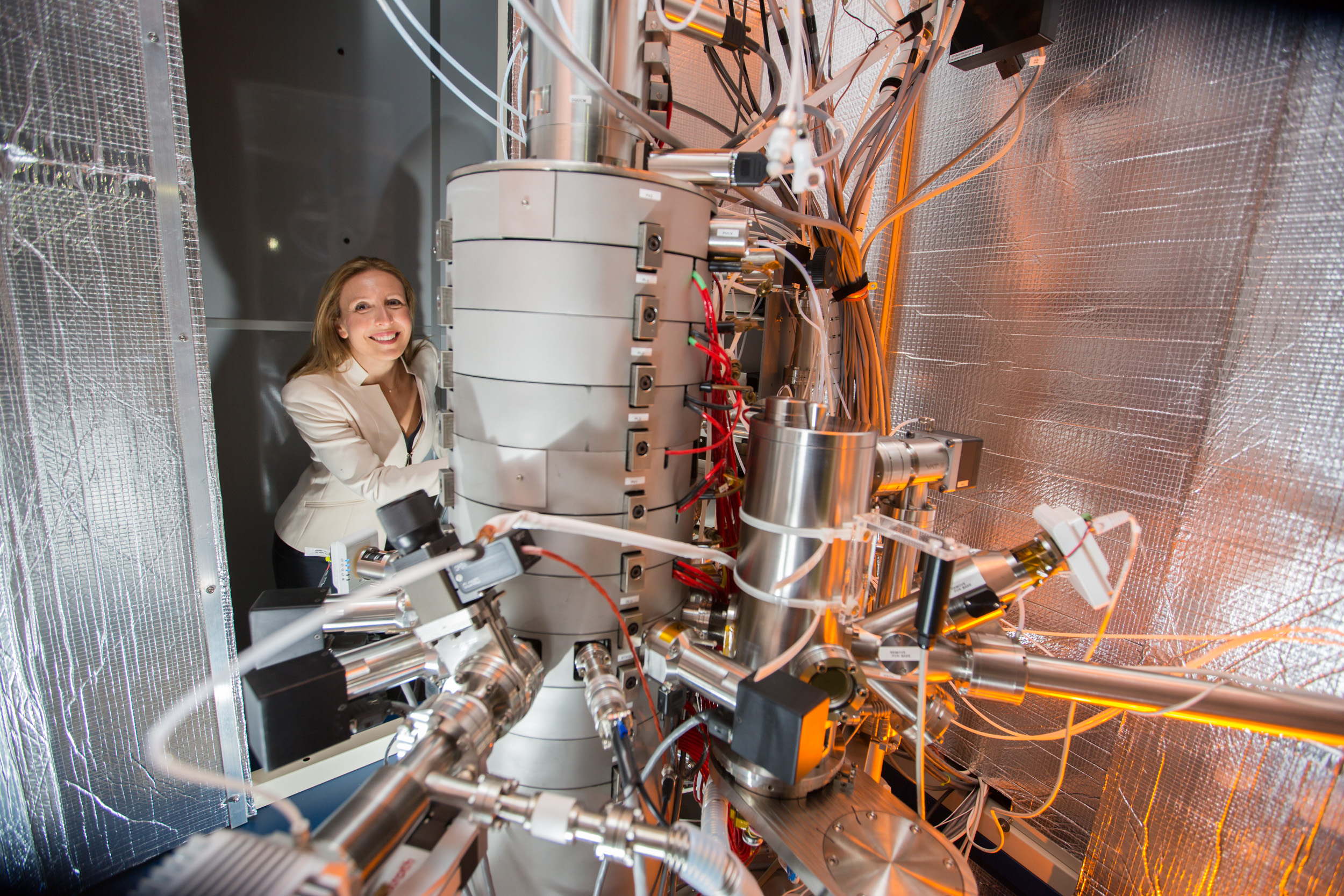Prof Valeria Nicolosi, a researcher in the Trinity-based Advanced Materials and BioEngineering Research (AMBER) centre, has become Ireland’s only five-time recipient of European Research Council (ERC) funding, after being awarded a €150,000 grant from the EU.
Nicolosi, who is a research professor in the School of Chemistry and the School of Physics, as well as an investigator in Trinity’s Centre for Research on Adaptive Nanostructures and Nanodevices (CRANN), will receive the funding under the ERC’s “Proof of Concept” grants. These grants are used to support researchers with the development of a commercial and societal application of their work.
Nicolosi’s work in AMBER, which is funded by Science Foundation Ireland (SFI) and partly based in Trinity, involves the investigation of nanomaterials that can be used as energy storage devices. This latest funding, which will act as a top-up to the ERC funding of €1.5 million she received in 2011, will be used to to develop a commercial use for advanced nanomaterials, and explore their potential to prevent heat loss across a wide range of technologies and machines.
In a press statement, Nicolosi she was “delighted” to receive this latest funding. This latest ERC grant brings the total research funding she has received over the past five years to over €12 million.
Commenting on the industrial solutions her research could support, she said: “This technology has the potential to become a feasible, easy and efficient solution for a range of manufacturing companies. This grant is allowing me to take the next step with the technology to really see it applied in industry”.
Nicolosi’s research places her at the centre of a growing focus by industries, including the aerospace industry and pharmaceutical manufacturing, to find alternative materials to act as heat conductors and heat spreaders to provide more efficient and cost effective ways of regulating heat loss.
Indeed, such is the demand for a solution to the problem that it is estimated that by 2021 the global market for thermal management products will be $14.7 billion. By applying Nicolosi’s research, which focuses on the use of two-dimensional nanomaterials to improve the transport of heat, it is hoped that manufacturers will soon have a solution that is cheap, lightweight and able to facilitate new product designs.
ERC “Proof of Concept” grants, which have an overall budget of €20 million, are highly competitive, with only 44 researchers out of 141 applicants receiving funding in the first round of grants.
Director of AMBER, Prof Michael Morris, praised the work of Nicolosi, calling this latest grant an “excellent acknowledgement” of her research. “She is at the forefront in 2D nanomaterials research and her work will bring economic and societal benefits to Ireland in developing more efficient ways to deal with energy consumption”, he said.







